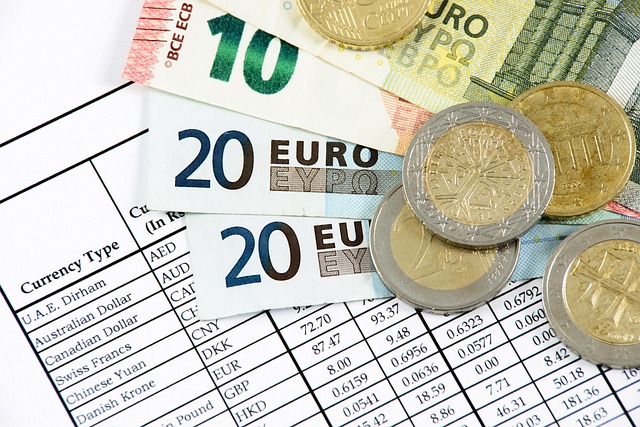
Global financial markets are abuzz with speculation that the United States, under the administration of Donald Trump, may be exerting pressure on key trading partners to allow their currencies to appreciate against the US dollar. This sentiment gained significant traction following a dramatic two-day surge exceeding 9% in the value of the New Taiwan dollar (TWD). The rapid appreciation has ignited a broader rally across Asian currencies, including the Korean won (KRW), Chinese yuan (CNY), and Japanese yen (JPY), fueled by concerns that a weaker dollar could become a strategic lever in ongoing and future US trade negotiations.
The catalyst for this market upheaval appears to be growing anticipation that the Taiwanese government is acquiescing to US pressure to permit a stronger TWD as part of bilateral trade discussions. The data reflects a remarkable shift: on May 5th, the USD/TWD exchange rate plummeted to an intraday low of 29.183, marking a substantial 4.95% appreciation of the Taiwanese currency in a single day. This followed a significant 4.39% gain on May 2nd, culminating in a two-day appreciation of 9.34% – the most substantial such movement in the TWD in three decades.
This sharp appreciation has been widely interpreted by market analysts as a potential concession by Taiwan in its trade engagements with Washington. The US has long scrutinized the exchange rate policies of its trading partners, alleging that currency undervaluation provides an unfair competitive advantage to exporters. The sudden and sharp strengthening of the TWD lends credence to the notion that these concerns are now translating into tangible pressure.
The ripple effects of the TWD's ascent were immediately felt across the Asian foreign exchange landscape. The Korean won experienced a notable 5.45% appreciation over the same two-day period. Market participants indicated that this move was amplified by activity from Taiwanese life insurance companies operating in the offshore non-deliverable forward (NDF) market. These institutions reportedly engaged in significant selling of US dollar futures to hedge against the growing expectation of a weaker dollar, further bolstering the won's value.
The Chinese yuan also saw a substantial gain of 8.33% over the two days, while the Japanese yen, often considered a safe-haven currency, registered a more modest but still significant appreciation of 1.63%. This synchronized strengthening across multiple Asian currencies underscores the pervasive influence of the perceived US pressure and the broader expectation of a potentially weaker dollar.
The impact was clearly visible in the New York NDF market, where the one-month USD/KRW contract touched a low of 1357.81 on May 5th. This represented a considerable drop of approximately 40 won compared to the overnight market close of 1401.50 won on May 2nd, highlighting the rapid shift in market sentiment regarding the won-dollar exchange rate.
Despite the market's strong reaction, official denials have emerged. Yang Chin-long, the Governor of Taiwan's central bank, publicly refuted the notion of exchange rate negotiations with the US on May 5th, firmly stating that currency matters were not on the agenda for trade talks. However, such pronouncements often fail to entirely quell market speculation, particularly when price action suggests a different underlying dynamic.
Adding his perspective from Milan, Bank of Korea Governor Lee Chang-yong acknowledged the broad strengthening of Asian currencies. He attributed this trend to reports of the US engaging in exchange rate discussions with individual nations and an increased probability of a resolution in the ongoing US-China trade tensions. However, Governor Lee also cautioned against premature conclusions, warning that a sudden shift in the prevailing dynamics could lead to a reversal and a subsequent rise in exchange rates.
The potential implications of the US actively seeking a weaker dollar as a tool in its trade policy are far-reaching. A weaker dollar makes US exports more competitive on the global stage while simultaneously making imports more expensive. This strategy could be employed to reduce trade deficits and exert pressure on countries with large trade surpluses with the US. However, it also carries risks, including potential inflationary pressures within the US and the possibility of retaliatory currency interventions from other nations.
Furthermore, direct pressure on specific countries like Taiwan to allow their currencies to appreciate could strain bilateral relations and raise questions about the fairness and transparency of international economic policy. While the US has legitimate concerns about currency manipulation and its impact on global trade, the methods employed to address these concerns can have significant and often destabilizing effects on financial markets.
The current situation underscores the intricate interplay between trade policy and currency markets. The mere perception of US pressure can trigger substantial currency movements, as market participants attempt to anticipate and position themselves for potential policy shifts. The coming weeks and months will be crucial in determining whether the recent Asian currency rally is a temporary phenomenon driven by speculation or the beginning of a more sustained trend influenced by deliberate US policy actions. Investors and policymakers alike will be closely monitoring trade negotiations and official pronouncements for further clues about the future direction of exchange rates in the region. The delicate balance between addressing trade imbalances and maintaining stable currency markets will be a key challenge for the global economy in the near term.
[Copyright (c) Global Economic Times. All Rights Reserved.]






























